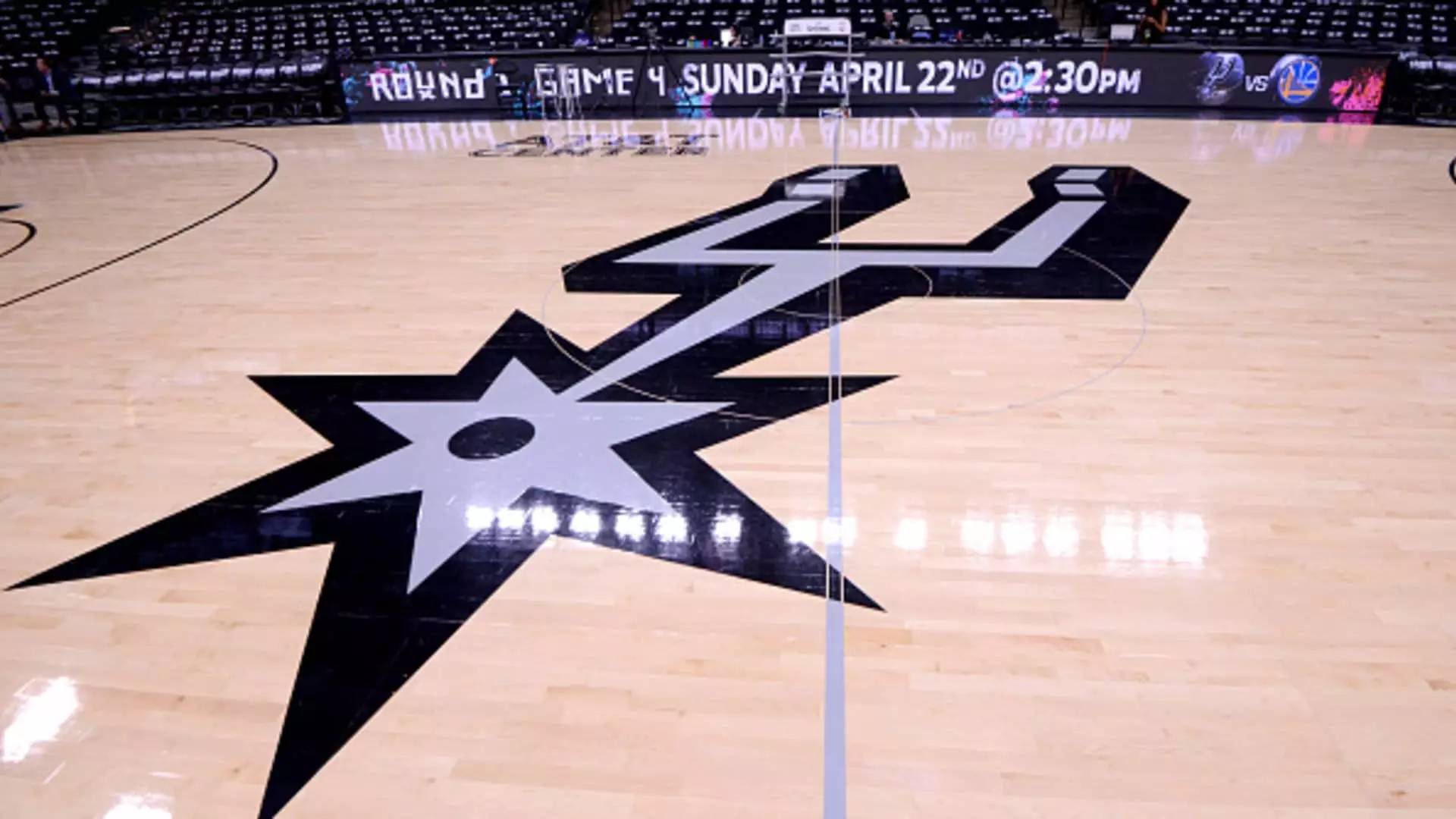In a significant development in the world of sports ownership, businessman Paul Viera is expanding his investment in the San Antonio Spurs from 5% to 11%. This decision not only reflects Viera’s confidence in the team’s potential but also highlights broader trends in NBA valuations. As the league continues to grow, teams are increasingly being seen as valuable assets, attracting attention from savvy investors.
Recently, Viera, the founder and CEO of Earnest Partners—a prominent investment firm based in Atlanta—secured a deal to buy the remaining interest of food service giant Aramark in the Spurs. This acquisition was achieved at what appears to be a steep discount, with insiders revealing that the deal values the franchise at approximately $2.5 billion. Such figures demonstrate the lucrative nature of NBA franchise ownership in the current market climate.
Previous to this transaction, Viera first entered the Spurs ownership circle by acquiring a 5% stake last May, identifying the potential for growth within the team. Interestingly, Aramark’s financial disclosures indicate that their sale of a 20% stake in the Spurs left them with a pretax loss of $1.1 million for fiscal year 2023. This underlines the complexities involved in franchise ownership and the financial maneuvers that accompany it.
The rise in valuations of NBA teams is underscored by the league’s recent $76 billion media rights deal, which stretches over 11 years. This monumental agreement has transformed how franchises are perceived, with ownership stakes gradually becoming more attractive commodities for investors. For comparison, recently former Milwaukee Bucks star Junior Bridgeman acquired a 10% stake in the Bucks, valuing the team at an impressive $4 billion—an explicit sign of soaring interest in NBA assets.
In context, while Viera’s investment in the Spurs appears to position him as a proactive stakeholder in the NBA, it also reflects a significant shift in ownership demographics within the league. Nervousness from traditional investors is being offset by a new wave of influential stakeholders, including former players, demonstrating that the landscape of sports ownership is evolving.
Ownership in NBA franchises remains a dynamic affair. The Spurs’ majority owner, Peter Holt, has led the team since 1996 and presides over an ownership group that includes notable figures such as technology entrepreneur Michael Dell and NBA icon David Robinson. Despite the Spurs’ storied history and five championships, the franchise has been experiencing challenging times, finishing the 2023-24 season at the bottom of their division.
Yet, with the arrival of rookie sensation Victor Wembanyama, there are indications that the Spurs’ fortunes, both on the court and financially, could be on the upswing. Wembanyama’s potential to become a transformative figure for the team adds a layer of optimism for current and prospective investors.
Furthermore, Viera’s investment underscores a growing trend towards diversity within NBA ownership. The NBA has actively sought to attract individuals from a range of backgrounds to invest in teams, aiming to diversify the league’s ownership spectrum. Former players like Grant Hill, Dwyane Wade, and Michael Jordan have already made their mark by owning portions of various franchises. Viera’s decision to increase his stake in the Spurs aligns with this initiative, paving the way for a renewed era of ownership that reflects the demographics of its fanbase.
With Viera’s recent stake increase and the changing landscape of NBA ownership, all eyes are now shifting toward how this will influence the fortunes of the Spurs and reshape the contours of professional basketball ownership. The impending sale of the Boston Celtics, led by co-owner Wyc Grousbeck, also anticipates a significant valuation of between $5.5 billion and $6 billion, further testament to the lucrative nature of NBA ownership now.
Paul Viera’s investment in the San Antonio Spurs represents not just a personal financial move but an insightful comment on a rapidly evolving sports landscape where the stakes are high, and the opportunities for growth are boundless.

